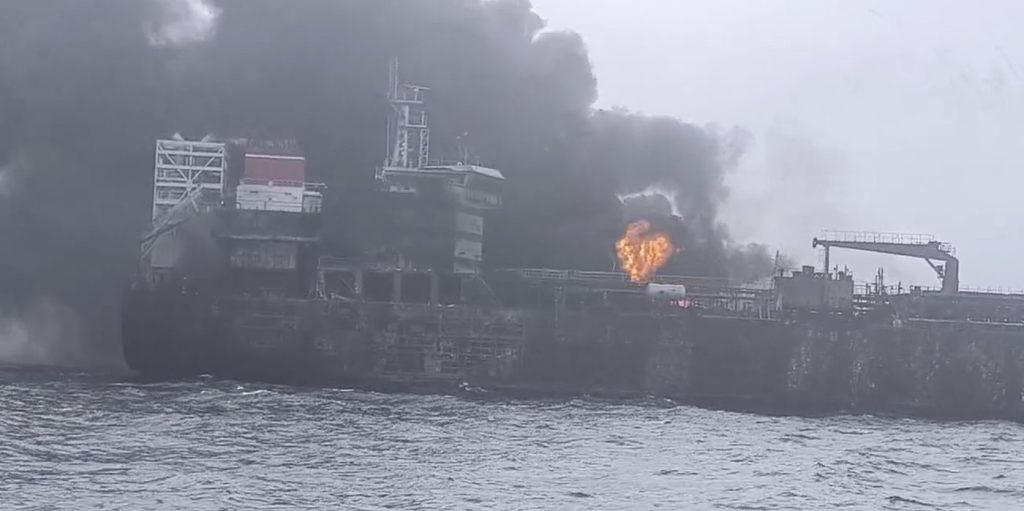LONDON (AP) — British officials are currently facing a significant environmental crisis following a collision involving a cargo ship and a tanker off the eastern coast of England. The incident occurred when the Portugal-registered container ship, Solong, struck the U.S.-flagged tanker, MV Stena Immaculate, which was anchored about 10 miles (16 kilometers) off the coast. The collision took place in the North Sea on March 10, 2025, resulting in both vessels being engulfed in flames. As a consequence, toxic jet fuel was released into the sea from the ruptured tank, raising concerns about potential environmental damage.
At the forefront of the situation, British government minister Matthew Pennycook described the event as a "fast-moving and dynamic situation." He assured the public that air quality readings in the area remain normal and emphasized that the coast guard is adequately equipped to manage the situation. Various containment measures, such as booms and aircraft capable of deploying dispersants, have been employed to limit the spread of the oil spill.
The collision prompted a large-scale rescue operation, which involved lifeboats, coast guard aircraft, and commercial vessels. Out of the 37 crew members aboard the two ships, all but one were rescued and taken ashore in the port of Grimsby, located approximately 150 miles (240 kilometers) north of London. Unfortunately, one crew member remains hospitalized, while another is reported missing, leading the coast guard to suspend search efforts late Monday.
Investigators from the U.K. Marine Accident Investigation Branch have commenced gathering evidence to determine why the Solong, which was en route from Grangemouth in Scotland to Rotterdam in the Netherlands, collided with the stationary tanker. The inquiry is expected to be co-led by representatives from the U.S. and Portugal, the respective flag states of the vessels involved.
The MV Stena Immaculate was part of the U.S. government's Tanker Security Program, wherein commercial vessels can be mobilized for military fuel transport as required. According to its operator, the U.S.-based maritime management firm Crowley, the tanker was carrying 220,000 barrels of Jet-A1 fuel, of which some has undoubtedly leaked into the sea following the collision.
The cargo of the Solong included sodium cyanide, a substance known for its potential to produce harmful gases when reacting with water, raising further concerns about possible chemical spills. However, the extent of any leak remains uncertain, and organizations like Greenpeace U.K. have expressed that it is too premature to accurately assess the environmental impact of the incident.
Environmental experts, such as Alex Lukyanov from the University of Reading, have noted that the ramifications of the spill will depend on several factors, including the size of the leak, weather conditions, sea currents, and the type of oil involved. He has highlighted that this incident is particularly troubling due to the persistence of the oil, which can degrade slowly in marine environments. The potential environmental toll from such a spill could be severe, especially given its proximity to active fishing grounds and rich seabird colonies.
As authorities continue to manage the crisis, the focus remains on addressing the immediate environmental threats while investigating the collision's circumstances and pursuing accountability. This incident serves as a stark reminder of the risks associated with maritime transportation, particularly in ecologically sensitive areas.










